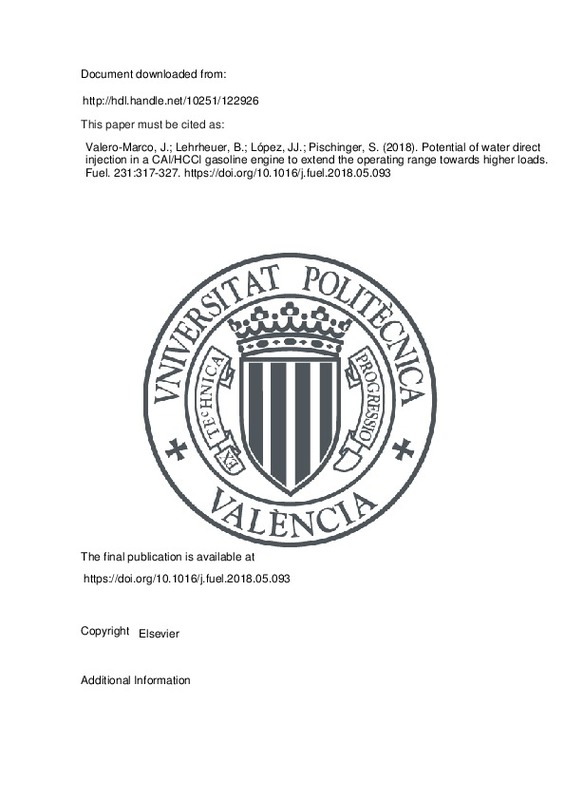JavaScript is disabled for your browser. Some features of this site may not work without it.
Buscar en RiuNet
Listar
Mi cuenta
Estadísticas
Ayuda RiuNet
Admin. UPV
Potential of water direct injection in a CAI/HCCI gasoline engine to extend the operating range towards higher loads
Mostrar el registro completo del ítem
Valero-Marco, J.; Lehrheuer, B.; López, JJ.; Pischinger, S. (2018). Potential of water direct injection in a CAI/HCCI gasoline engine to extend the operating range towards higher loads. Fuel. 231:317-327. https://doi.org/10.1016/j.fuel.2018.05.093
Por favor, use este identificador para citar o enlazar este ítem: http://hdl.handle.net/10251/122926
Ficheros en el ítem
Metadatos del ítem
| Título: | Potential of water direct injection in a CAI/HCCI gasoline engine to extend the operating range towards higher loads | |
| Autor: | Valero-Marco, Jorge Lehrheuer, Bastian Pischinger, Stefan | |
| Entidad UPV: |
|
|
| Fecha difusión: |
|
|
| Resumen: |
[EN] CAI (Controlled AutoIgnition) systems, also named HCCI (Homogeneous Charge Compression Ignition), are a promising way to improve gasoline engines. This combustion mode is more efficient than the standard SI (Spark ...[+]
|
|
| Palabras clave: |
|
|
| Derechos de uso: | Reconocimiento - No comercial - Sin obra derivada (by-nc-nd) | |
| Fuente: |
|
|
| DOI: |
|
|
| Editorial: |
|
|
| Versión del editor: | https://doi.org/10.1016/j.fuel.2018.05.093 | |
| Código del Proyecto: |
|
|
| Agradecimientos: |
The research was performed as part of the Research Unit (Forschergruppe) FOR 2401 "Optimization based Multiscale Control for Low Temperature Combustion Engines", which is funded by the German Research Association (Deutsche ...[+]
|
|
| Tipo: |
|







![[Cerrado]](/themes/UPV/images/candado.png)


